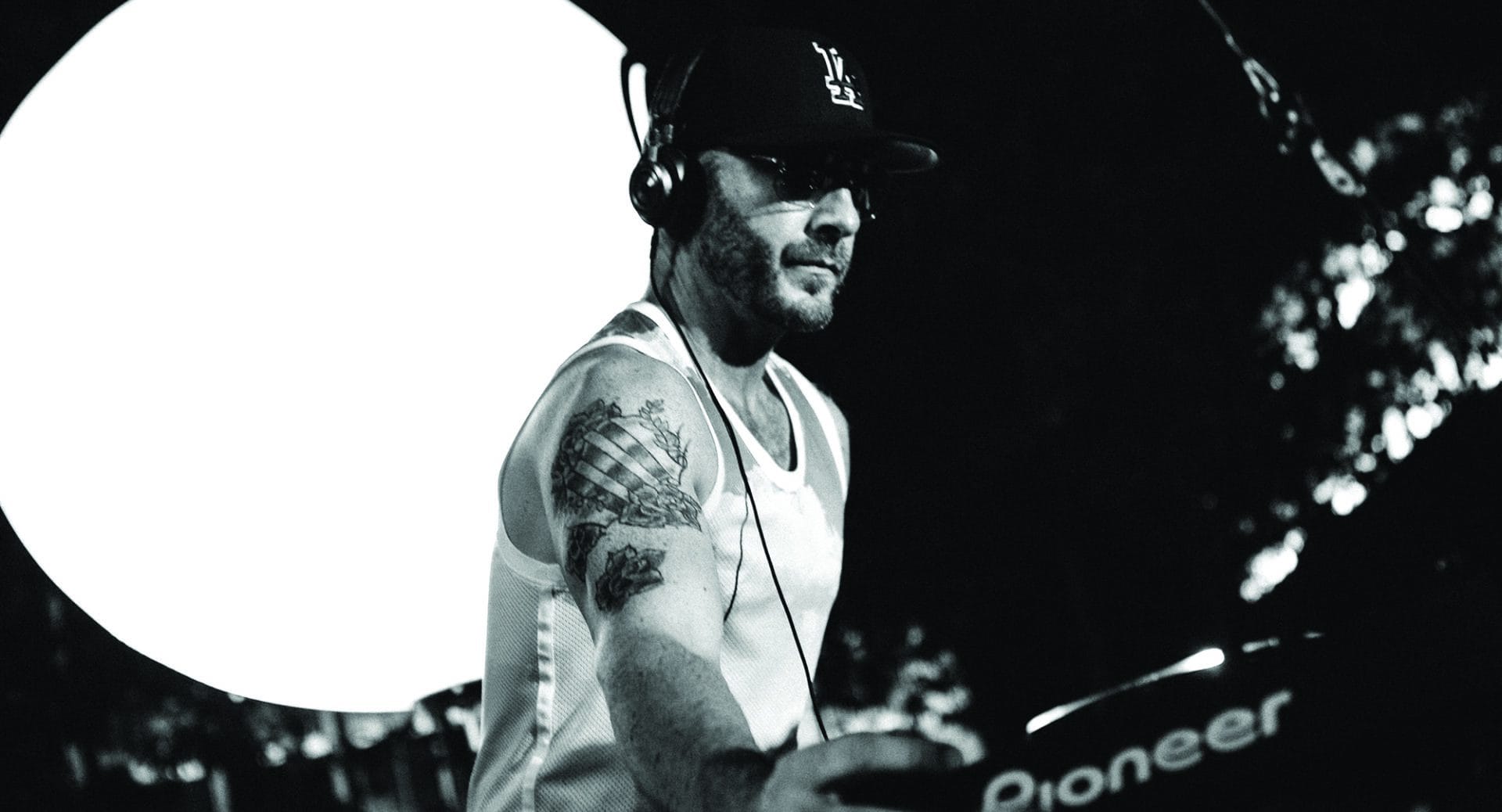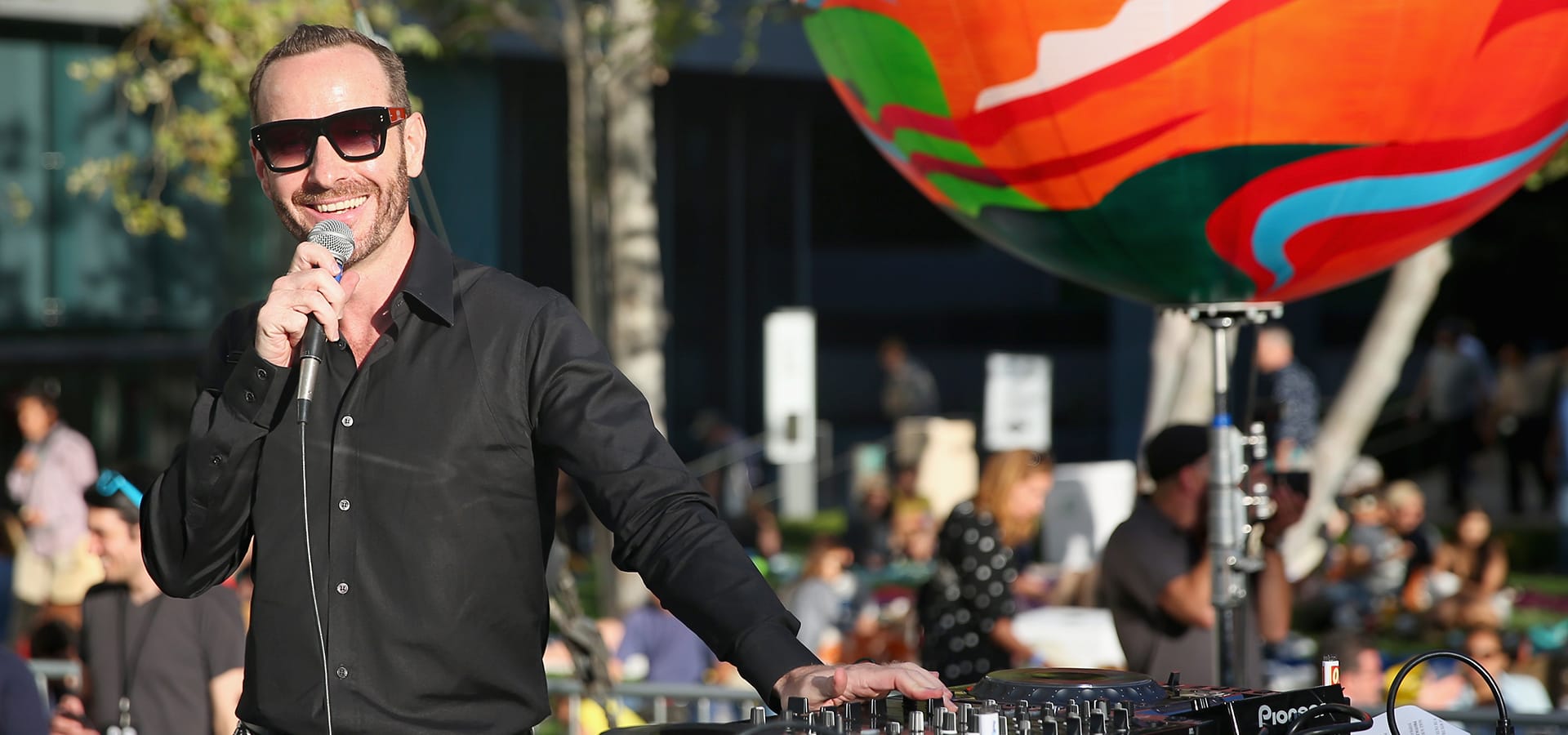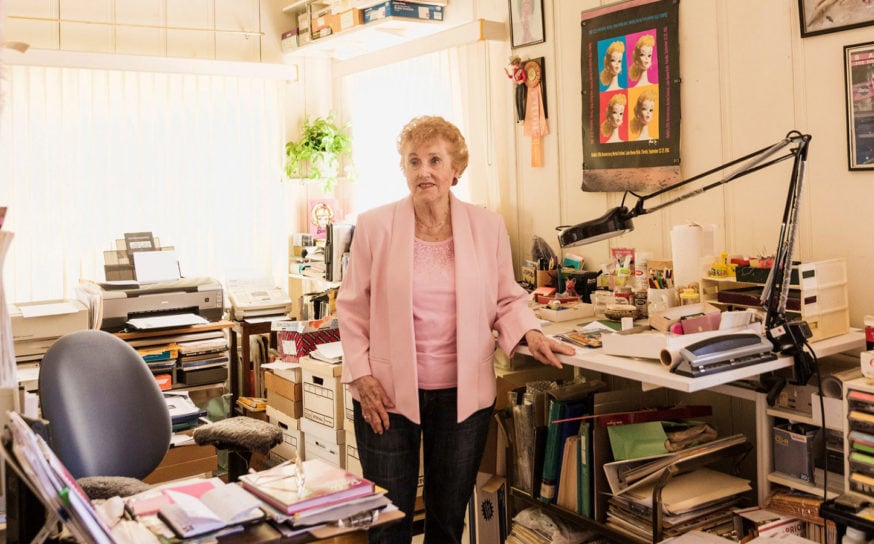KCRW’s Jason Bentley Put His California Spin on the Independent Music Scene
Before he completes his tenure as the station’s Music Director, the longtime DJ and cultural ambassador reflects on his career curating the Southern California soundtrack.
-
CategoryArts + Culture, Film + TV, Makers + Entrepreneurs, Music + Podcasts
-
Written byRich Thomas
If you operate in the entertainment circles of Los Angeles, you know the name Jason Bentley, first and foremost from his time behind the mic as selector and host of KCRW’s “Morning Becomes Eclectic” and the nighttime DJ mix show “Metropolis.” He’s also been your guide through the Coachella Valley Music & Arts Festival’s livestream for the past six years, and has been an integral part of the Hollywood Bowl’s Summer Concert Series and the “Sound in Focus” program at the Annenberg Space for Photography in West Los Angeles. And if you’ve been involved in SoCal’s underground rave scene since the early ’90s, you know about his skill behind the decks and his passion for all things dance music. On June 19, Bentley announced that he was moving on from his post as KCRW’s Music Director, vacating one of the city’s most vital and impactful positions of influence in terms of arts and culture. His last scheduled morning show will air at the end of August.
Jason sat down with Golden State to talk about his legacy at KCRW, his plans for the future, and what it means to curate the soundtrack to one of America’s biggest cities.

Was the 10-year tenure something that was baked into the plan from the beginning, or did you just feel like it was getting to be that time?
Jason Bentley: Really it was a sense of the precedent set by previous Music Directors. It had been about a decade each, so I was going on that. I didn’t want to be in a position where people were like, “This guy is hanging around a bit too long.” I just wanted to do it on my own terms. Also, a huge part of it was the physical move to a new studio. I was part of the planning from day one on that, even the more abstract conversations with the architect about our needs and the culture of the organization, so the actual move was not lost on me; just looking around and having the sense that, “Alright, we did it. We got there!”
[Music Director] is a pretty involved position. You have to really be in the right time of your life when you can unconditionally give and not be so worried about what you get, and let those benefits become apparent through other types of rewards: contributing to meaningful culture in Los Angeles with public programs, being partners with these artists and developing careers. That’s something that I’ll miss. I really loved being able to spot talent at an early stage and being sort of an unspoken partner in building that.
Your relationship with KCRW spans 30 years, well beyond your time as Music Director. If you could scribble some advice on a wall next to the DJ booth for future Music Directors, what would it be?
JB: There’s some wisdom on one of the many KCRW coffee mugs we’ve offered as a premium over the years—and I’ve got quite a collection—but my favorite says “FEAR NO ART,” and I think that’s the attitude you have to maintain. If you’re giving artists a chance to express themselves, you won’t be disappointed. That goes to being open-minded and staying in touch with a youthful exuberance for music. If you feel yourself losing touch with that, I think it’s either time to move on or you’re in the wrong place. And I’m not saying I’ve lost touch with that. I’m still excited about music; I’m excited every time I come in to do a show. This morning I was riffing on the news of the 50th anniversary of the Apollo 11 mission, so my first song was “Space Oddity” and my second song was Lemon Jelly’s “Space Walk,” an old record on XL Recordings that features astronauts on a radio talking about seeing the earth for the first time from space. Having that kind of opportunity to express myself and be able to play records for people in a way that’s just in touch with the moment where we are. I remember during the election at one point I came out of a Trump press conference with [David Bowie’s] “The Man Who Sold The World.”
I mean, that’s the dream. If you’re the type of person who made mix-tapes or painstakingly programmed the 5-disc changer or wanted to own the aux cord on road trips, the goal is to just play music for your friends. You’ve just managed to have that friend group be the entire city of Los Angeles.
JB: Between 12-17 hours a week for 27 years. It’s really stunning thinking about it in those terms, and that’s also part of it. I’ve done it. I’ve done it at a high level consistently for quite a while, and I want to believe that I still have one or two more good pivots in my life, so that’s what this is. Some people have said, probably without thinking too much about it, “Congratulations on your retirement!” Retirement is such a weird word to me. This is just a pivot, but it is significant because KCRW and that community have meant so much to me, and I hope I continue to serve that in whatever capacity.
Are the gatekeepers and curators still important in an age where most music discovery is fueled by algorithms and people generally like to promote their own expertise?
JB: For sure. I don’t think the major streaming services have figured out how to humanize the experience and give us the same sense we had when we went in to a great record store or looked at a great publication or tuned in to a great radio show. I personally don’t really enjoy a deep dive on those streaming platforms. I think they’ve got a long way to go. Maybe they’ll figure it out at a certain point, but it comes back to what you’re describing, which are the filters, the curators, the gatekeepers; your trusted voices. I think that’s the next stage of things.
Do you remember the first record you ever queued up on Morning Becomes Eclectic?
JB: Yeah, it was Mark Isham’s “Sense of Touch” from the Crash soundtrack.
What does Morning Becomes Eclectic mean to the city of Los Angeles?
JB: Fundamentally it’s the soundtrack to a wonderful, creative and intellectual community. I’ve heard from so many people in recent weeks about how important it’s been for them. It’s powerful stuff. It’s been humbling and a real pleasure to have those things shared with me.
What do you think your individual legacy will be at KCRW?
JB: Each Music Director has had their signature. Nic [Harcourt] was known for singer/songwriters and Brit pop, Chris [Douridas] embraced Hollywood soundtracks and composers, and Tom [Schnabel] was all about world music. My thing has really been about DJ culture and electronic music. And when I say DJ culture, it’s about putting the DJ more as the artist and in the mix as a storyteller, controlling rhythm, tone and mood through songs. A lot of mixing on the air is commonplace on KCRW, so I think that is my signature; welcoming a younger sound and sensibility through DJ culture and electronic music.
I’m also probably more of a programming-minded person than any of my predecessors, meaning that I am more fixated on creating a discernable language rather than being wildly eclectic and all over the record shop. There is a place for that; there’s a place for spontaneity, but it really needs to be balanced with programming. It’s also about supporting the indie music ecosystem: a new record coming out, the big shows coming to town, tickets going on sale. We have a responsibility to play our part in that ecosystem.
Why California Is Compensating Its Farmers to Grow Weeds
It’s all about carbon absorption.
Desert Dream: John Elgin Woolf’s Mid-Century Desert Retreat
A legendary architect enjoys a romantic renaissance thanks to the Palos Verdes Art Center.
Meet the Californian Who Dressed One of the Most Iconic Figures in History
Her work inspired designers like Bob Mackie, Nicole Miller, Jeremy Scott and Jason Wu.
Get the Latest Stories







